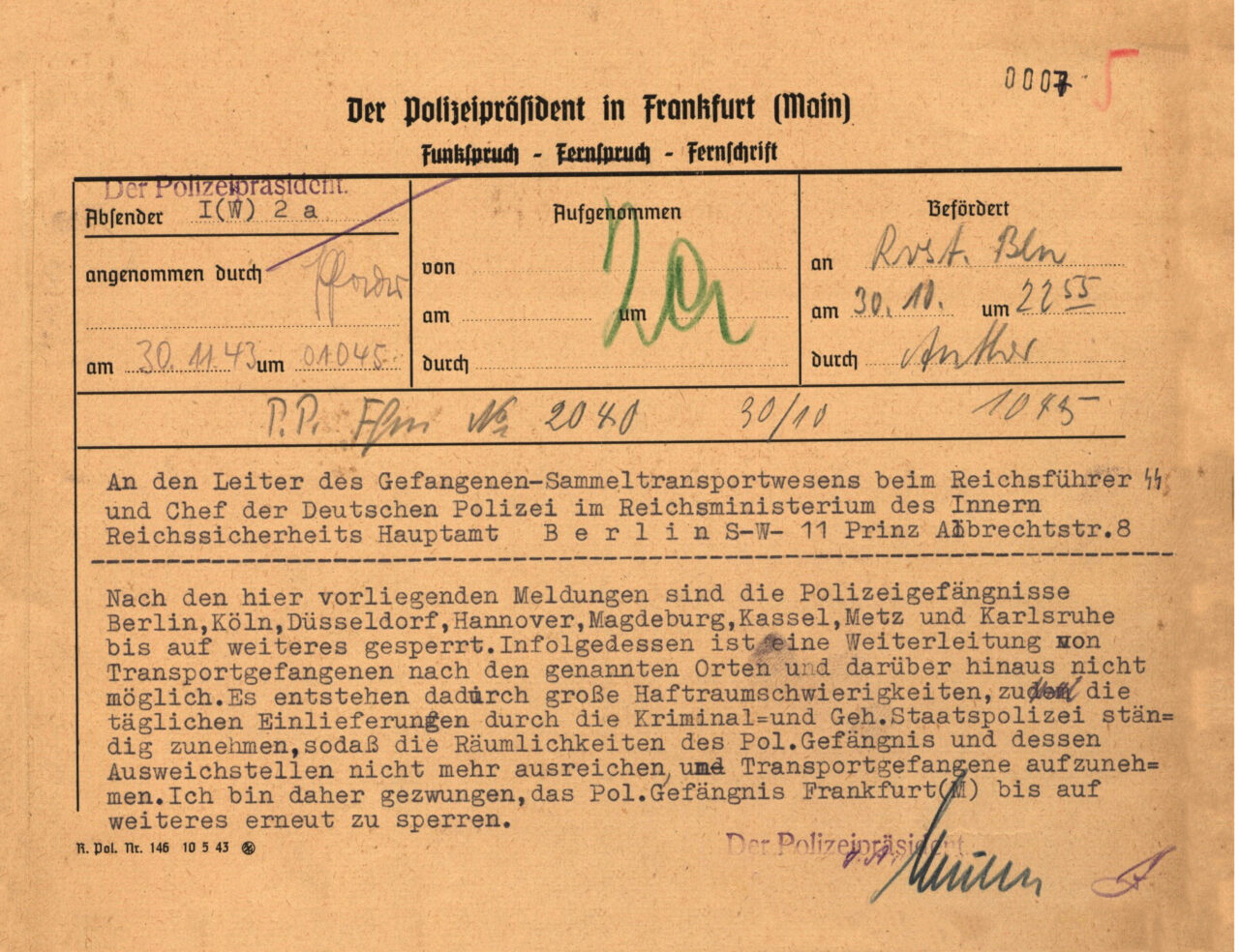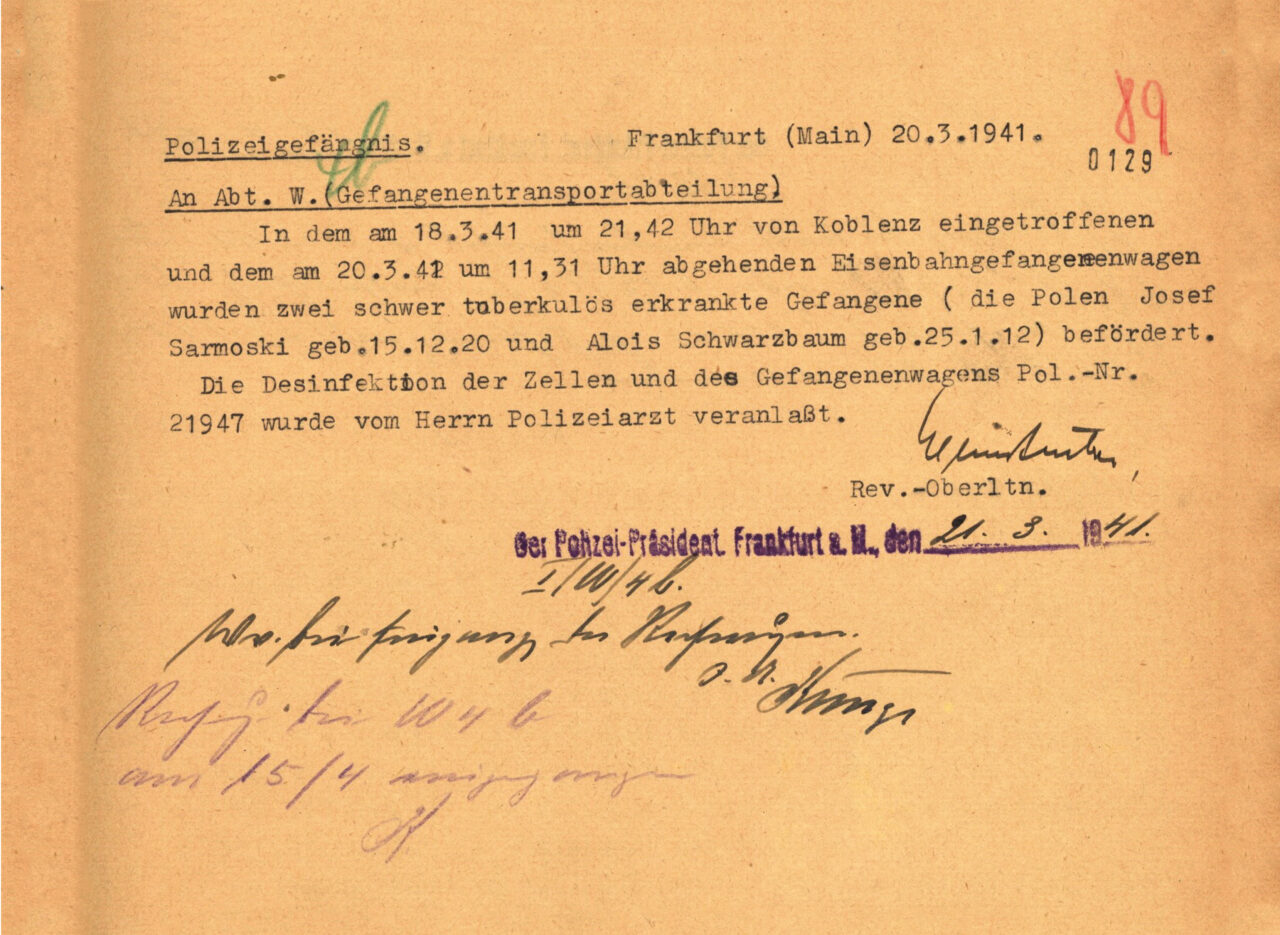In 1943, an average of 173 men and 147 women were imprisoned per day. This means that an average of 320 people were imprisoned in the Klapperfeld each day. In January 1943 there were 179 men and 97 women. On 19 January 1944 there were already 269 men and 162 women, i.e. a total of 431 people imprisoned in the Klapperfeld police prison. On 21 January 1944, 247 men and 161 women, i.e. a total of 408 people, were imprisoned in Klapperfeld. On 22 January 1944, 265 men and 160 women, for a total of 425 people, were imprisoned in the old Klapperfeld police prison. In 1943 and 1944 the police prison in Klapperfeldstraße was thus heavily overcrowded.

The often brutal treatment of the prisoners by the Nazis, the miserable hygienic conditions combined with the severe overcrowding were responsible for the outbreak of many diseases.
Overcrowding is described by an employee at Klapperfeld as follows:
»Collective cells with several beds (36) 80 prisoners on 60.39 square metres. For the most part, the [detainees] only own what they wear on their bodies. Almost all of them are assigned to work outside the police prison during the day. After a rain, the prisoners sleep with their wet clothes on, dressed like the other prisoners, on straw sacks without bedding. A ventilation system is installed in each cell. However, this is only intended for normal occupancy. The stench cannot escape from the cell windows because they are too small. Since darkening must be carried out at all costs, the windows cannot be fully opened during the night. The bad air naturally permeates the whole house, especially strongly during the night. The stench then becomes even more unbearable at bucket times, that is, in the morning and at noon, when the faeces buckets are emptied.«
Bugs, lice and fleas were everywhere in the police prison. Spotted fever broke out. There were not enough clothes for the detainees, washing was not possible in the police prison and the kitchen was only set for 200 portions. So in addition to the poor hygienic conditions, there was probably not enough food.

Source: Hessisches Hauptstaatsarchiv; Abt.407 Nr.882, S. 35ff